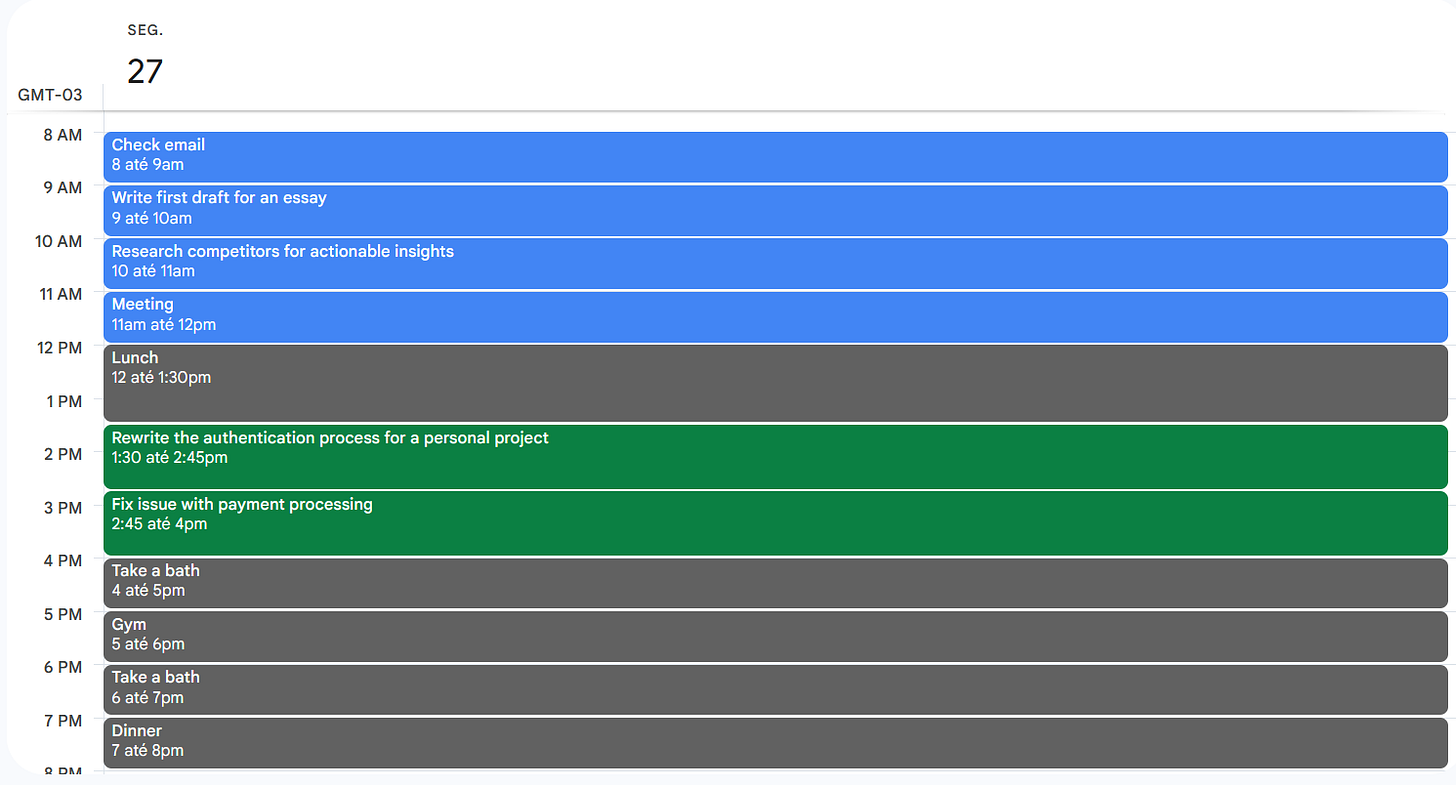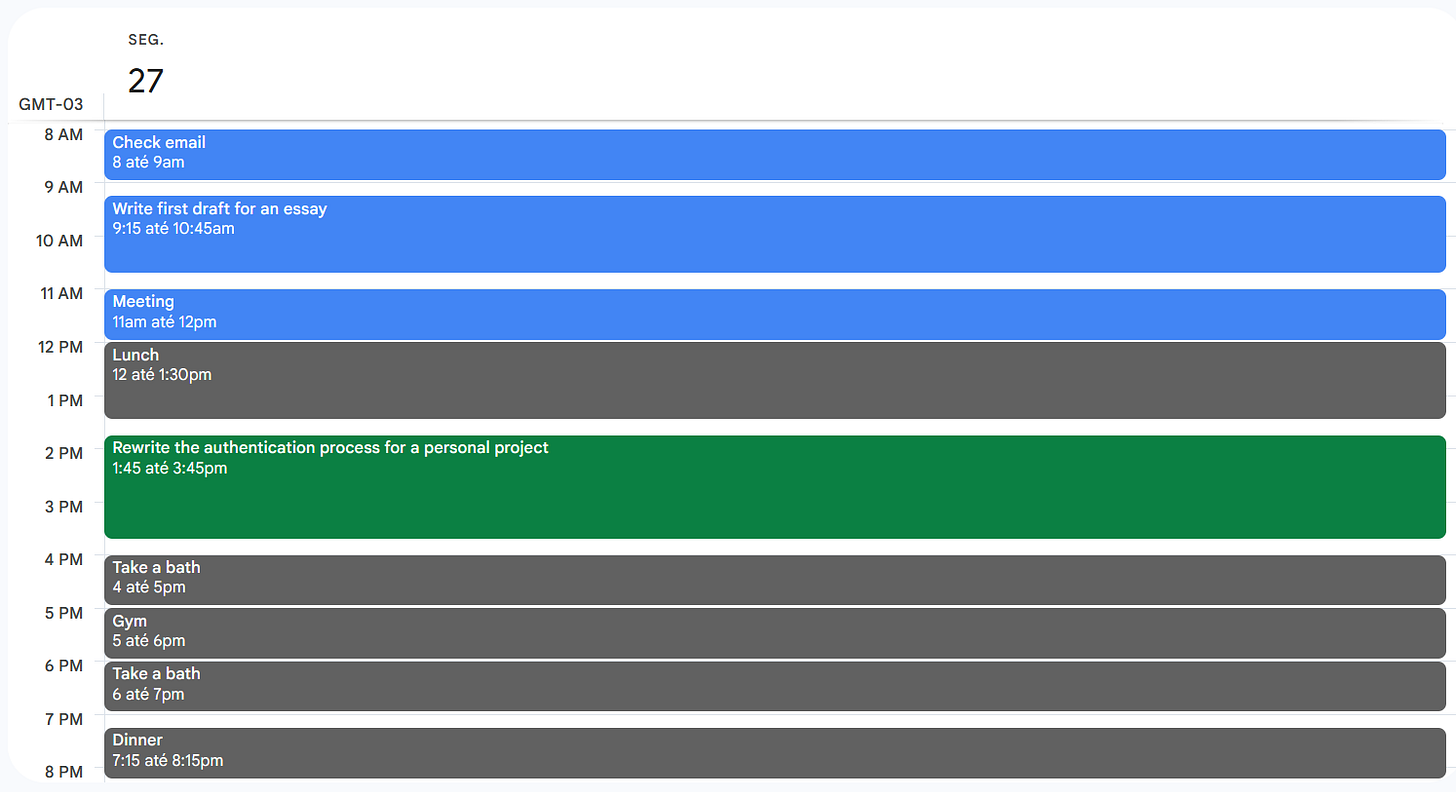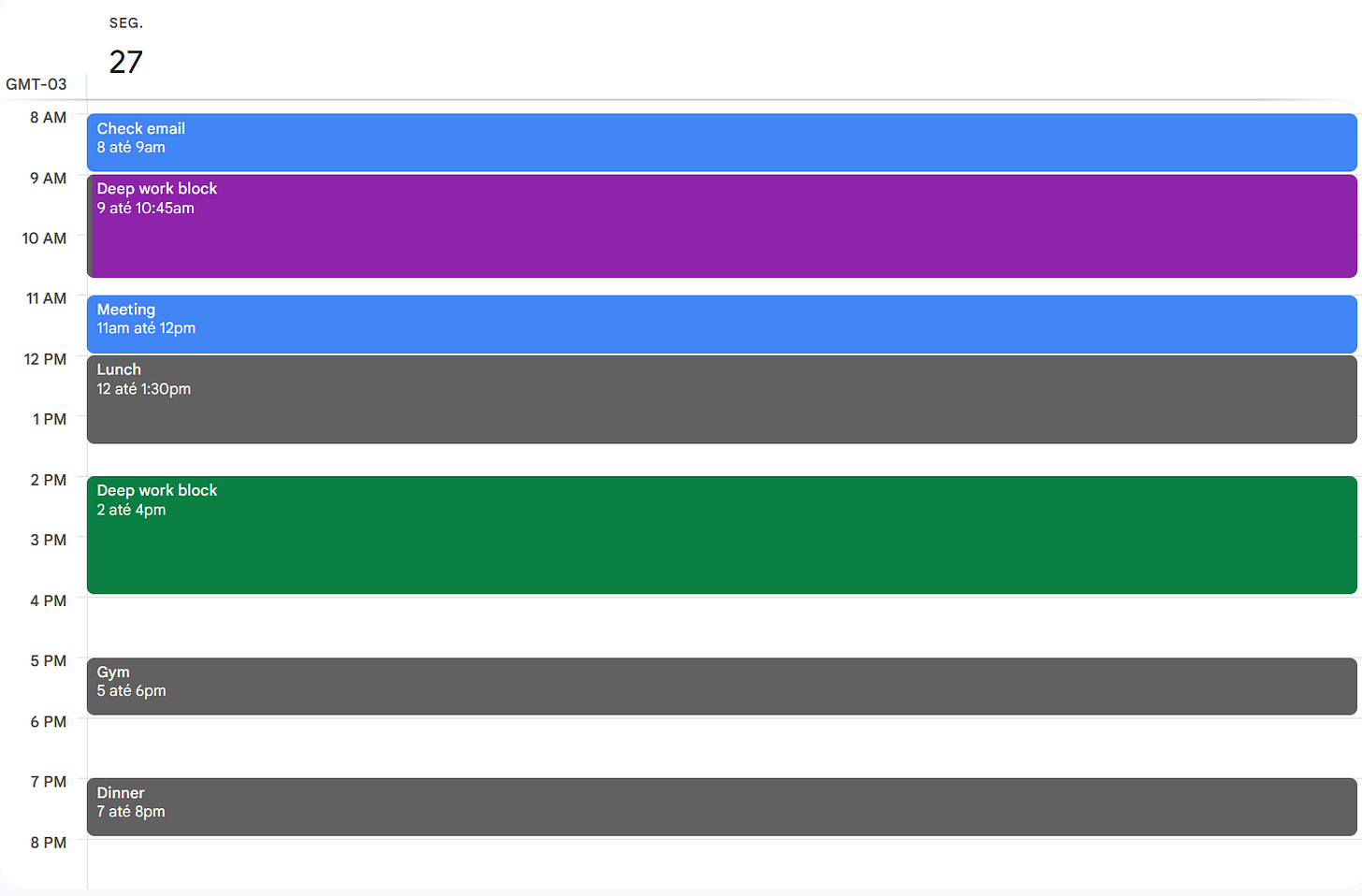I confess, I suck at following my calendar.
I can easily plan my whole week ahead of time, but when it’s time to actually follow it — I freeze, unsure of what to do even with the plan right in front of me. I start to think “Why should I tie myself to something I made in the past when I can just do whatever the heck I want?”
Then, I end up ignoring the calendar altogether and regret it after I barely did 20% of what I planned for the day.
Your calendar is a guide, not a dictator
However, a lot of people (myself included) still struggle to follow their calendars, even if planning inside it is easy and visual.
There’s a lingering feeling of anxiety and fear with following a schedule. It’s like you’re being ordered around by your older self who made that plan, who had the expectation of completing everything in it, ignoring what possible situations could arrive in the future. It’s like you don’t have a voice, and that your older self is a dictator, ordering you to finish things.
I imagine my older self, sitting on a pile of older tasks, staring down at me with a gaze filled with disdain, saying “Are you going to offer more undone tasks for me, or are you finally going to do them like I planned to?”
This makes me not want to follow the schedule, due to fear of not completing everything on it.
But, what if, instead of a dictator, my past self was a guide?
Instead of seeing my past self as a critic waiting for me to fail, I can choose to view them as an ally who wants me to succeed and guide me through my journey. Adopting this mindset would make it easier to follow my calendar and stay on track.
Without that judgmental dictator, what’s there to be afraid of?
Your calendar is your last line of defense
It also makes no sense to think of your calendar as a dictator, who only orders you around and forces you to defend them when the enemy approaches.They’re your last line of defense, they’re what should prevent you from succumbing to procrastination, not induce it.
The calendar is supposed to help you visually plan your time, like a medic in a battlefield, assisting you in your time of need. It’s not above or underneath you, it’s your comrade.
Then, why do you think of your calendar so badly? Why are you fearing it?
Most likely, it’s because you’re projecting your own insecurities onto it, or you’re making a hella heavy schedule back there.
A guide will not place too many places for you to visit in your schedule, and will instead do their best to have wiggle time for breaks and emergencies. If nothing bad happens and things finish ahead of time, they can always add something new at the end.
You should do the same: don’t overfill your day, keep some wiggle time for emergencies on your schedule, and if everything goes smoothly, you can end your day earlier or put other things in the free pockets of time.
Remember: your calendar should help you, not overwhelm you.
Making the transition
Before I made the transition to seeing my calendar as a guide, I used to see my calendar like this:

This might look okay at first glance, but it was actually hard to follow. I had to follow the calendar religiously, as anything other than perfection would derail one task, that would derail another task, and eventually my whole schedule would fall apart. For example, if I overspend my time on a draft, I’ll have less time to work on my research before the meeting.
After making the change to see my calendar as a guide, I found my calendar to become much more bearable and easier to look at.

I added 15 minutes buffer timers between each task, in the case that anything unplanned for creeps into my schedule. Yes, this means that I can’t fit in as many tasks as before in the calendar, but ensures that the quality of what I do increases, since I won’t be stressed about rushing my current task to instantly start another.
And at the end of the day, if I don’t need the 15 minutes, they will accumulate, and I’ll have 30 min to work on a new task after each time block — or just to relax if I’m feeling lazy.
To make things easier, I also prefer to keep my schedule even tidier by batching tasks together: this means that, whenever I want to work on some project, I’ll just create one big time block called “Work on project X” to my calendar, and kick off the tasks on my task manager until the time ends.
This way, my calendar is guiding me to work on the project, not finishing a large amount of tasks. It also makes it a bit easier to look at, since I don’t have to modify it too much, nor get overwhelmed by the amount of things it wants me to do.

Let me hear your thoughts
What’s your current relationship with your calendar? Are you treating it as a dictator or a guide? If you’re treating it as a dictator, what makes you fear them?
Thanks for reading this post. Feel free to like it so more people on Substack can discover it! Let me know your opinions on this topic in the comments section!




I used to use Google calendar like that, and it's quite liberating to know that any tasks I deferred to another day will show up later. So I don't have to worry about it now. It's immensely calming to be able to put something off my worry plate and focus unto today. Eg work on thesis, set for two days in next week. Easily see your workload over a month. Then zoom in later once the date is set and break into 4 hour work chunks later.
For this to work, you need to check your calendar religiously every day. And all the tasks you need to do today is. Set as all day events at the top. Color coded by priority. If there's too many things in your plate, just move it to the next day. Then back to day view to focus.
For some reason I haven't been able to do this in amplenote, despite it being well integrated to my notes. Perhaps that's because I'm lazy to check two calendars instead of one. Most of the meetings and scheduling of events still need to be done in native calendars.
I believe you're using amplenote as well. Curious on your thoughts.
I structured an 'ideal week' a few years ago and I more or less follow it. It's a good point to make something you don't need to fiddle with + buffer time to reduce anxiety over the calendar
I like the idea of building an 'anti-fragile' calendar that can handle any disruptions (vs something that needs to be followed perfectly)